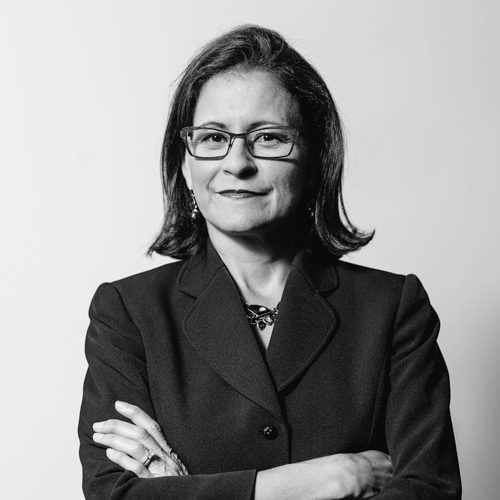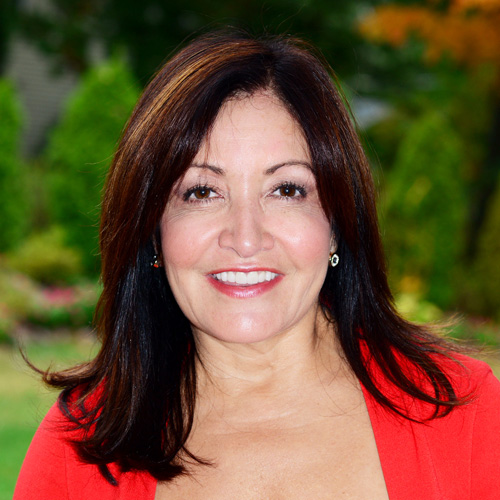The first Hispanic person in space, Dr. Ellen Ochoa, has demonstrated throughout her life a special talent for pushing past boundaries—both physical and invisible.
Board Snapshot
Service Corporation International (NYSE:SCI), Board of Directors
The Federal Reserve Bank of Dallas, Board of Directors
National Science Foundation
National Science Board
Ochoa joined NASA’s Ames Research Center as a research engineer in 1988, after graduating with an electrical engineering doctorate from Stanford and working at Sandia National Labs for three years. Two years later, she moved to Johnson Space Center after NASA selected her for its astronaut program, and she hasn’t looked back.
Ochoa’s nine-day mission aboard the space shuttle Discovery in 1993 made her the first Hispanic woman in space. She went on to fly three additional missions, logging in nearly one thousand hours in space.
Since hanging up her space suit, Ochoa held several leadership positions at the Johnson Space Center before becoming the center’s director, making her the first Hispanic director and only its second female director.
“When I joined the astronaut corps, I was part of a crew, and I watched how our crew commander pulled the team together,” Ochoa says. “I learned how important it is to have a strong leader—and part of a great leader’s skill set is the ability to build a strong team.” Both building and being part of a strong team is a skill Ochoa wanted to continue to develop when she first became interested in joining a corporate board.
About two years ago, an unexpected board opportunity came across her desk—an invitation to join the board of Service Corporation International, a billion-dollar provider of funeral goods and services.
Ochoa had originally thought that the best fit for a board position would be for a company engaged in complex operations and high-risk activities, both integral elements to her daily responsibilities at NASA. She thought, perhaps an engineering firm or a tech startup would be an obvious fit for her talents, but when the opportunity to learn the aspects of a completely different sector came to her, she was intrigued and enthused. “When SCI first approached me, I realized that what I really wanted was to be challenged. I wanted to make a difference by leveraging my skills and experiences in new ways. It’s what SCI was looking for, too.”
It wasn’t as risky as launching herself into space, but Ochoa has never shied away from the opportunity to learn something new. “A genuine love of learning is something my mother nurtured in all five Ochoa children,” she says. “She encouraged us all to get a good education and then use that education to go after anything we wanted to do,” she says. “She wanted us to each have a life that interested us.”
Joining board of SCI turned out the perfect fit for Ochoa, because it empowered her to leap once more into uncharted territory.
Ochoa is especially excited to deliver a unique perspective on two of SCI’s key customer demographics. She is both the only woman and the only Hispanic in the boardroom. “Women between the ages of 50 and 70 represent an important segment of SCI’s pre-need business,” she said, a perspective that was missing before she joined the previously all-male board.
Similarly, as Hispanics represent the fastest growing demographic in the United States, Ochoa can represent in the boardroom in a relevant way. “It’s important to the company to offer the cultural preferences that this community wants,” she says.
A vital part of blending leadership with teamwork, Ochoa says, is being able to listen but also question. “We talk a lot at NASA about how important it is to listen and process dissenting opinions. That’s a skill I bring to SCI. I continue to be eager to learn.”
Beyond having dedicated so much of her own life to learning, children from coast to coast associate Ochoa’s name with learning. Five schools—including the Ellen Ochoa prep academy in Pico Rivera, California—are named after the former astronaut. Ochoa has attended each school’s dedication and continues to visit her namesake educational institutions. She speaks to the students and teachers about the importance of encouraging young people’s interest in science, technology, engineering, and math (STEM) fields, but mostly about having a steadfast belief in their own limitless potential. “Showing up in person and talking to the students is fun for me, and I hope it’s also meaningful to the students,” she says.
Having been fascinated by her experience on the board of SCI, Ochoa says she’s open to joining additional boards, but with a caveat. “If I were to join another board, the opportunity to learn would be the reason,” she says. “My goal is always to continue to grow. Certainly what I’m doing right now gives me that opportunity, and I’m sure opportunities will continue to come my way.”
 In the Director’s Seat with Esther Aguilera
In the Director’s Seat with Esther Aguilera
Esther Aguilera: As a board member, you have to challenge conventional thinking and push the management team to look around the corner in order to anticipate opportunity and risk. In your article, you talk about the importance of listening and processing dissenting opinions as part of your NASA training. How have you applied this skill set to challenge the management team, company, or boardroom?
Ellen Ochoa: While I haven’t had any major dissenting opinions while I’ve been on the board, I have either brought up or contributed to discussions on particular risks, bringing in my experience on classifying by likelihood and consequence, developing mitigations, and noting positive or negative trends. I’m also staying up on trends with best board practices and focus areas of proxy advisory services and participating in discussions on enhancing communication with our shareholders. I’ve found the other board members and management team to be very receptive to my questions and comments.
EA: As a trailblazer in space, a Latina engineer, and the second female director at the Johnson Space Center, you are no stranger to working in homogeneous work environments. Now, as the first woman and Latino on the SCI board, tell me about how your unique perspective and diversity in the boardroom leads to more informed decision-making or better decisions?
EO: First, let me say that I respect the other members of the SCI board and know that they bring a great deal of experience and familiarity with the business to the table. That being said, I’ve seen firsthand at NASA how diverse teams often consider a wider range of questions, actions, and potential solutions to difficult problems. While I’m just one person, I do believe that I bring in different perspectives and contribute to richer discussions in several areas, including staying relevant to the customer—a key strategy at a time when practices in this industry are changing.

